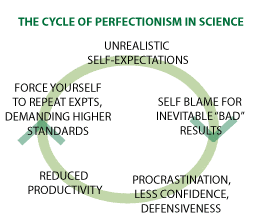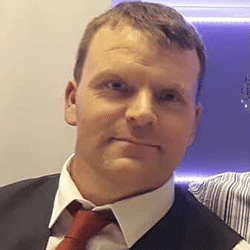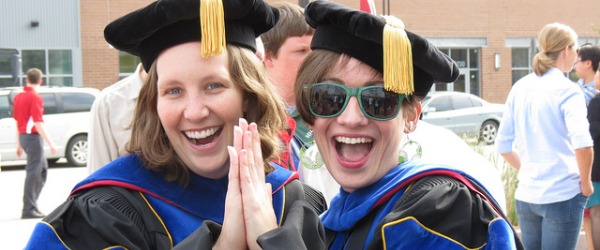Do you fear failure every time you do an experiment?
Do you feel constantly stressed about obtaining poor results?
Do you feel personally culpable when an experiment goes wrong?
If you answered “yes” to any or all of these questions, you may be suffering from perfectionism. For a scientist, this is a particularly damaging trait that needs to be recognised and acted on.
What is a perfectionist?
Perfectionists have unrealistic expectations of themselves. They focus on results – often unattainable ones – and are only satisfied if those results are met perfectly. They take no pride in the effort they make to achieve those results, and are highly self-critical if the results are not met.
Pushed towards their goals by the fear of failure rather, than pulled toward them by a healthy desire to achieve, perfectionists are their own worst enemies. But for a perfectionist who happens to work in science, life can be pretty tough.
Why Perfectionism is especially bad if you are a scientist
The reason for this is that in science, you have to be prepared to accept “bad” results most of the time. These can either arise from experiments that failed due to technical reasons or sound experiments that simply did not deliver the required result. Whatever the case, no matter how much care, attention and effort a perfectionist puts into an experiment, they will give themselves no credit for their work unless the desired result is achieved. Without results, in a perfectionist’s own eyes, they have failed and will blame themselves for the failure.
The downward spiral
If every “bad” result hits this hard, it will naturally lead to self-doubt, the fear of failure, and often the fear of disapproval from peers or superiors (see below). The natural reaction to this kind of pain is to protect against it, leading to the classic traits of perfectionism like:
- Procrastination – Using every possible excuse not to do the next experiment, to protect yourself from another painful “failure”
- Defensiveness – Hiding experiments, methods, results, failures from your peers and superiors to prevent disapproval
- Low confidence – Feelings that you are to blame if the experiment did not work will naturally lower your confidence.
- Low self-esteem – Constant self-criticism erodes self-esteem, while defensiveness and a general negative outlook on life can isolate you from those around you.
Completing the cycle – High achievers (or high pressure!) 
In many walks of life perfectionists simply give up. They can’t reach the unrealistically high goals they set themselves, so they just give up. This is not an option in science because it’s your job to force your confidence-stripped-self into the next experiment. If you are a high achiever perfectionist you will push yourself progressively harder and into each round of experiments, demanding increasingly high standards to compensate for your perceived failures. If you have the wrong kind of boss, he/she will do the pushing for you. Contrast this process of being pushed toward your goal by fear of failure and self- (or boss-) chastisement or to a healthy achiever, who is gradually pulled toward their goal by the desire for success. Notice that this is truly a downward spiral because each time you start a new round of experiments, you do so with less confidence and self-esteem than previously.
How having the wrong boss can make it worse
If you are experiencing these problems, you are a self-orientated perfectionist – that is, you expect perfection from yourself. In contrast, “other-orientated” perfectionists expect perfection from everyone else. The combination of a self-orientated perfectionist scientist and an other-orientated perfectionist boss is a very bad thing, for obvious reasons – the supervisor will re-enforce the perfectionist tendencies of the scientist, driving them into an even faster downward spiral. A situation like this almost broke my scientific career, and in some ways I still bear the scars of that experience today. If you are in this kind of situation yourself and you feel it is starting to affect you, you must get help immediately because it can deteriorate very quickly and damage your career.
How to help yourself
If you are suffering from perfectionism, all is not lost. Once you recognise it, you can help yourself using the points and resources I have listed below. If you feel that these are not enough – if you feel you are already far down the cycle or have a boss who is compounding your perfectionism, then consider talking to a trusted advisor/councillor about it. Take it from someone who as been in this situation – it’s not going to get any better unless you do something about it and if allowed to progress it will lead to a situation that at best will take you a long time to recover from, and at worse, ruin your appetite for scientific research completely.
Things to try:
- Take pleasure doing each experiment – don’t focus on the results… let them come to you.
- Focus on quality of experiments rather than quantity
- If you are experiencing technical problems, don’t hide them away. Talk about them with your boss. Or if he/she is a problem, talk to others about the technical problems, and about your boss.
- Accept that it’s ok for experiments not to work. Techniques can be difficult and may take a while to master. Give yourself the time to learn them and the mental breathing space to be able to objectively look at the problem, with the help of others if possible.
- Accept that it’s ok to not get the right result. It’s an experiment after all (if you got the result you expected every time, it’s wouldn’t be an experiment, would it?)
- Talk to a councillor or a close friend if things are getting on top of you.
Resources:
Overcoming perfectionism – how to develop a healthier outlook
Perfectionism: A double-edged sword
If you’re a perfectionist, or even if you are not, we’d love to hear your views.
Photo: turtlemoon






